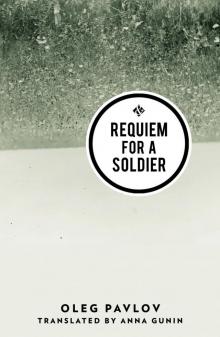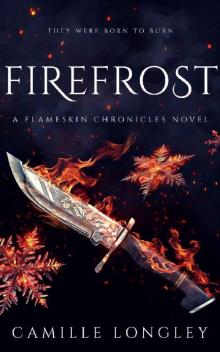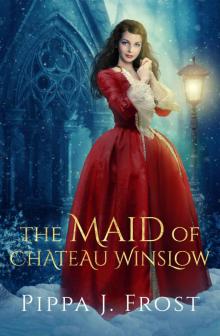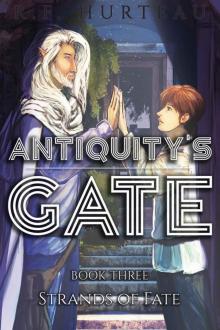Requiem for a Soldier


Author: Oleg Pavlov
Category: Other2
Published: 2015
Series: Tales of the Last Days
View: 348
Read OnlineIn the vast Kazakh steppes of the crumbling Soviet Empire, Alyosha has finished his army service and is promised a gift from his deaf commander: an everlasting steel tooth. As he waits for it in the infirmary, he agrees to help out a medical officer, and they set out on a journey that takes them all the way to the kingdom of the dead. Oleg Pavlov's kaleidoscope of a tale is peopled with soldiers and prisoners, hoboes and refugees and mice that steal medicines. Their surreal inner world is vividly reflected in Pavlov's expressive prose, reminiscent of Platonov. Poetic, tragic and darkly comic, the novel is at once a grotesque portrayal of late Soviet reality and an apocalyptic allegory that has drawn comparisons with Faulkner and Kafka.
**ReviewPraise for Requiem for a Soldier "Oleg Pavlov is a powerful writer and Requiem for a Soldier is his finest work. After being demobbed, a soldier who has done his service in a desolate firing ground is meekly continuing in the military infirmary, waiting for a savage paramedic to fit him with a steel tooth (to replace a perfectly healthy one), but instead of his ‘eternal tooth’ he ends up being charged with homicide. Yet the more penetrating reader will discern not so much a social flavour as an apocalyptic tone in this novel subtitled 'A Tale of the Last Days'." Alla Latynina, Vremya MN “Russian Booker Prize-winner Pavlov writes with the confident eccentricity of a man who knows what to do with words.” Steward O'Nan, Big Issue "Requiem for a Soldier . . . is the standalone third volume in the Russian’s Booker Prize-winning trilogy Tales from the Last Days. Set at the end of the Soviet Empire it’s a slim, dark and poetic volume following Alyosha, a soldier who has finished his service, as he journeys to the kingdom of the dead. It’s both a grotesque portrayal of Soviet reality and an apocalyptic allegory." Big Issue in the North "Pavlov’s reputation and style sets him among the ranks of authors such as Genet and Burroughs with comparison also drawn to Faulkner and Kafka. Lovers of the haunting, poetic, literary grotesque of these authors combined with a healthy level of surrealist humour will find great satisfaction in the pages." Booktrust "Chekhov would approve . . . Pavlov [is] a witness with a flair for spectacular images of surreal beauty – a mouse 'quivered like a little heart' – which simply ease into a narrative, blending heightened prose descriptions with political satire and punchy dialogue, often expressing exasperation, which is well rendered into colloquial English by Anna Gunin." Eileen Battersby, The Irish Times "A triumph of Russian farce . . . At a time when the bodies of soldiers are being returned to their families from a war that the authorities assure us … the country is not fighting, we can only marvel at the author’s prescience." George Walden, Times Literary Supplement “... a meditation on death and the downfall of the Soviet Union suffused with all the bleak absurdity of a Samuel Beckett play.” Workshy Fop “A brutal and thought-provoking book.” The Lady review “A grotesque, caricatural portrait of the last days of the Soviet Empire” The Skinny Other Praise for Oleg Pavlov "Captain of the Steppe combines a traditional Russian faith in the humanising power of literature with a boisterous energy and imagination. Pavlov wrote two further army novels which, along with Captain of the Steppe , have become known as the 'Tales of the Last Days' trilogy, and we can be grateful that both are due for publication by And Other Stories." Michael Nicholson, The Times Literary Supplement "Pavlov skilfully navigates the razor-thin gap between dark comedy and tragedy."
Christopher Tauchen, Words without Borders "Pavlov imbues his world with a very particular flavour: the mixture of tragedy, absurdity and black comedy that runs in the veins of Russian literature as far back as the work of Nikolai Gogol . . . Pavlov fashions a disquieting and comic elegy." Marcel Theroux "Pavlov is revered by some as a philosophical genius whose books capture the essence of Russia and dismissed by others as a drunken grumbler . . . The Matiushin Case is a timeless quest for existential meaning and deals with the horror of Russian history through the microcosm of an individual's journey into hell." Phoebe Taplin, The Guardian About the AuthorOleg Pavlov: Oleg Pavlov is one of the most highly-regarded Russian writers today. He has won the Russian Booker Prize (2002) and Solzhenitsyn Prize (2012) among many other awards. Born in Moscow in 1970, Pavlov spent his military service as a prison guard in Kazakhstan. Many of the incidents portrayed in his fiction were inspired by his experiences there: he recalls how he found himself reading about Karabas, the very camp he had worked at, in Aleksandr Solzhenitsyn’s The Gulag Archipelago , became Solzhenitsyn’s secretary and was inspired to continue the great writer’s work. Pavlov’s writing is firmly in the tradition of great Russian novelists such as Dostoyevsky and Solzhenitsyn. He was only 24 years old when his first novel, Captain of the Steppe , was published, receiving praise not only from critics but from the jury of the Russian Booker Prize, which shortlisted the novel for the 1995 award. Pavlov went on to win the Prize in 2002 with his next book, The Matiushin Case (English translation published in 2014 by And Other Stories). The Matiushin Case was the second novel in what would become the thematic trilogy set in the last days of the Soviet empire: Tales from the Last Days. All three works in the trilogy are stand-alone novels. The third book, Requiem for a Soldier , was published by And Other Stories in 2015.
Anna Gunin has translated I am a Chechen! by German Sadulaev and The Sky Wept Fire by Mikail Eldin. Her translations of Pavel Bazhov’s folk tales appear in Russian Magic Tales from Pushkin to Platonov (Penguin Classics), shortlisted for the 2014 Rossica Prize. She has also translated poetry, plays and film scripts by Denis Osokin and Yuri Arabov.
**ReviewPraise for Requiem for a Soldier "Oleg Pavlov is a powerful writer and Requiem for a Soldier is his finest work. After being demobbed, a soldier who has done his service in a desolate firing ground is meekly continuing in the military infirmary, waiting for a savage paramedic to fit him with a steel tooth (to replace a perfectly healthy one), but instead of his ‘eternal tooth’ he ends up being charged with homicide. Yet the more penetrating reader will discern not so much a social flavour as an apocalyptic tone in this novel subtitled 'A Tale of the Last Days'." Alla Latynina, Vremya MN “Russian Booker Prize-winner Pavlov writes with the confident eccentricity of a man who knows what to do with words.” Steward O'Nan, Big Issue "Requiem for a Soldier . . . is the standalone third volume in the Russian’s Booker Prize-winning trilogy Tales from the Last Days. Set at the end of the Soviet Empire it’s a slim, dark and poetic volume following Alyosha, a soldier who has finished his service, as he journeys to the kingdom of the dead. It’s both a grotesque portrayal of Soviet reality and an apocalyptic allegory." Big Issue in the North "Pavlov’s reputation and style sets him among the ranks of authors such as Genet and Burroughs with comparison also drawn to Faulkner and Kafka. Lovers of the haunting, poetic, literary grotesque of these authors combined with a healthy level of surrealist humour will find great satisfaction in the pages." Booktrust "Chekhov would approve . . . Pavlov [is] a witness with a flair for spectacular images of surreal beauty – a mouse 'quivered like a little heart' – which simply ease into a narrative, blending heightened prose descriptions with political satire and punchy dialogue, often expressing exasperation, which is well rendered into colloquial English by Anna Gunin." Eileen Battersby, The Irish Times "A triumph of Russian farce . . . At a time when the bodies of soldiers are being returned to their families from a war that the authorities assure us … the country is not fighting, we can only marvel at the author’s prescience." George Walden, Times Literary Supplement “... a meditation on death and the downfall of the Soviet Union suffused with all the bleak absurdity of a Samuel Beckett play.” Workshy Fop “A brutal and thought-provoking book.” The Lady review “A grotesque, caricatural portrait of the last days of the Soviet Empire” The Skinny Other Praise for Oleg Pavlov "Captain of the Steppe combines a traditional Russian faith in the humanising power of literature with a boisterous energy and imagination. Pavlov wrote two further army novels which, along with Captain of the Steppe , have become known as the 'Tales of the Last Days' trilogy, and we can be grateful that both are due for publication by And Other Stories." Michael Nicholson, The Times Literary Supplement "Pavlov skilfully navigates the razor-thin gap between dark comedy and tragedy."
Christopher Tauchen, Words without Borders "Pavlov imbues his world with a very particular flavour: the mixture of tragedy, absurdity and black comedy that runs in the veins of Russian literature as far back as the work of Nikolai Gogol . . . Pavlov fashions a disquieting and comic elegy." Marcel Theroux "Pavlov is revered by some as a philosophical genius whose books capture the essence of Russia and dismissed by others as a drunken grumbler . . . The Matiushin Case is a timeless quest for existential meaning and deals with the horror of Russian history through the microcosm of an individual's journey into hell." Phoebe Taplin, The Guardian About the AuthorOleg Pavlov: Oleg Pavlov is one of the most highly-regarded Russian writers today. He has won the Russian Booker Prize (2002) and Solzhenitsyn Prize (2012) among many other awards. Born in Moscow in 1970, Pavlov spent his military service as a prison guard in Kazakhstan. Many of the incidents portrayed in his fiction were inspired by his experiences there: he recalls how he found himself reading about Karabas, the very camp he had worked at, in Aleksandr Solzhenitsyn’s The Gulag Archipelago , became Solzhenitsyn’s secretary and was inspired to continue the great writer’s work. Pavlov’s writing is firmly in the tradition of great Russian novelists such as Dostoyevsky and Solzhenitsyn. He was only 24 years old when his first novel, Captain of the Steppe , was published, receiving praise not only from critics but from the jury of the Russian Booker Prize, which shortlisted the novel for the 1995 award. Pavlov went on to win the Prize in 2002 with his next book, The Matiushin Case (English translation published in 2014 by And Other Stories). The Matiushin Case was the second novel in what would become the thematic trilogy set in the last days of the Soviet empire: Tales from the Last Days. All three works in the trilogy are stand-alone novels. The third book, Requiem for a Soldier , was published by And Other Stories in 2015.
Anna Gunin has translated I am a Chechen! by German Sadulaev and The Sky Wept Fire by Mikail Eldin. Her translations of Pavel Bazhov’s folk tales appear in Russian Magic Tales from Pushkin to Platonov (Penguin Classics), shortlisted for the 2014 Rossica Prize. She has also translated poetry, plays and film scripts by Denis Osokin and Yuri Arabov.
 Firefrost: A Flameskin Chronicles Novel
Firefrost: A Flameskin Chronicles Novel The Maid of Chateau Winslow
The Maid of Chateau Winslow Shadow Line
Shadow Line The Lost Trail
The Lost Trail Billionaire Dragon
Billionaire Dragon Strands of Fate
Strands of Fate Beauty Secrets Cozy Mystery Boxed Set 1
Beauty Secrets Cozy Mystery Boxed Set 1 A Darker Kind of Love
A Darker Kind of Love